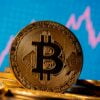Following in the footsteps of a slew of celebrities, organizations, and corporations, David Beckham is the latest name to take his brand to the metaverse, after he officially applied for several metaverse and non-fungible token (NFT)-related trademarks.
Indeed, the legendary footballer submitted three trademark applications with the United States Patent and Trademark Office (USPTO) on April 19, according to a tweet from NFT and metaverse trademark attorney Mike Kondoudis on April 24.
As per Mr. Kondoudis, the trademark filings hint at Beckham’s plans for NFTs, digital tokens, virtual clothing, footwear and headgear, as well as virtual performances and entertainment events.
Officially, the trademark, registered under serial number 97369672, was filed by California-based DB Ventures Limited, the venture capital firm owned by the football star-turned businessman.
It’s worth mentioning that Beckham jumped on the blockchain and cryptocurrency bandwagon in late March when he became the global brand ambassador for layer-one blockchain protocol DigitalBits (XDB), in order to use his influence to market the platform and increase its reach.
Other metaverse newcomers
On top of that, Beckham also isn’t the first in the world of football (i.e. soccer) to venture into the metaverse. As Finbold reported earlier, French footballing powerhouse Paris Saint-Germain (PSG) featuring superstars like Lionel Messi, Kylian Mbappe, and Neymar, also submitted a trademark application on March 16.
Meanwhile, other major names filing NFT and metaverse-related trademarks have included the air service branch of the United States Armed Forces, recording artist Billie Eilish, multinational energy corporation Chevron, global payment facilitator Mastercard, energy drink giants Red Bull and Monster Energy, Mark Zuckerberg’s Meta, lingerie brand Victoria’s Secret, as well as food industry giants KFC, Taco Bell, and Pizza Hut, and many others.
In total, NFT-related trademark applications had skyrocketed 400-fold in 2021 alone, compared to only three in the entire 2020. In 2022, an average of 15 such registrations had been recorded daily, as Finbold noted in February.















































